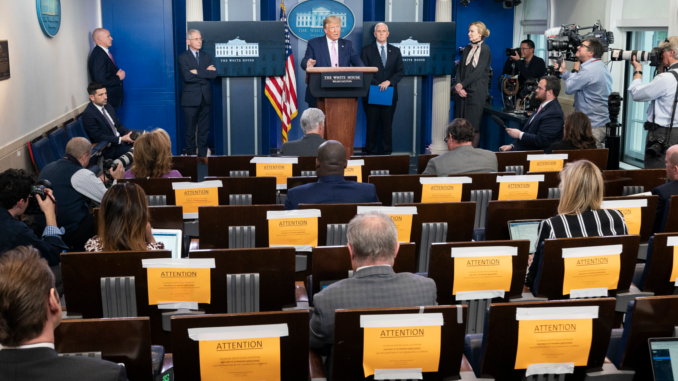
President Trump’s Administration has announced two new policies related to the novel coronavirus. The first addressed home evictions, the second participation in world efforts to find a vaccine.
This morning, the CDC released to the Federal Register a policy which will be enacted on September 4, the Temporary Halt in Residential Evictions to Prevent the Further Spread of COVID-19. It uses the broad powers available to the federal government for fighting large-scale public health crises to delay residential evictions until December 31, 2020. Everyone who would risk being homeless or forced into crowded housing (such as having to move in with relatives) would be covered by the law.
Functionally it is similar to a provision in the CARES act which enacted a similar temporary moratorium on evictions. A primary difference is that it is being issued without consultation of Congress, as a broad and massive exercise of executive power directly over the daily business of property owners.
Yesterday’s key coronavirus decision was to refuse participation in the COVID-19 vaccine Global Access initiative (COVAX) being coordinated largely by the World Health Organization. As the COVAX facility has the most expansive testing and research data available and the largest number of potential vaccines in various stages of trials, this decision risks putting the United States at the end of a long list of recipient nations when a vaccine is successfully developed.
It is important to note that this does not mean the United States is withdrawing from all cooperation with other nations in its own vaccine efforts. Many of the US vaccine developments have been part of coordinated efforts with private and public organizations in Germany, the United Kingdom, Israel, India, Japan and South Korea. Those efforts will remain underway; it is only the World Health Organization initiative which is to be shunned.
The administration had made this decision in an effort to maintain distance from what it terms a corrupt World Health Organization which is too heavily influenced by China. By doing so, it removes a number of potential weapons from any fight it might someday decide to make against the spread of COVID-19 and it cedes influence in a large and influential international body to an expansionist rival.

1 Trackback / Pingback
Comments are closed.